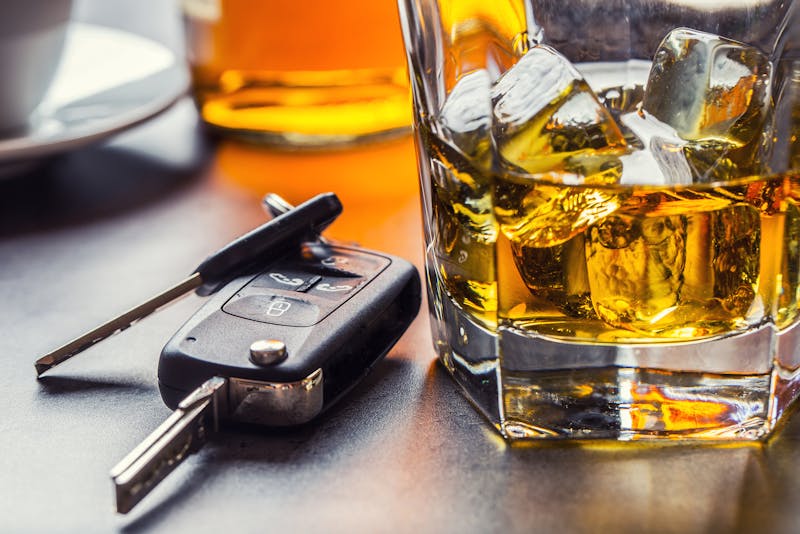
Driving under the influence (DUI) is illegal in the state of Florida. This crime is aggressively prosecuted by the authorities in this state, and if you are convicted, you could face a number of serious penalties even if you are a first-time offender. These penalties could affect your career, your driving rights, your finances, and your freedom. The only way to avoid or minimize these penalties is to aggressively fight your charges with the help of a Tampa criminal defense attorney.
An arrest for DUI does not always lead to a conviction. In fact, there are a number of defense strategies that can be used to beat DUI charges. Keep reading to learn about the different strategies that an attorney could use to secure your freedom.
Questioning the Legality of the Traffic Stop
Every DUI case begins with a traffic stop, so this is the first part of your case that your attorney will need to analyze.
Law enforcement officers are not allowed to pull someone over at random. Instead, they must have what is known as “reasonable suspicion” in order to conduct a traffic stop. Reasonable suspicion is defined as an objectively justifiable suspicion that someone is breaking the law that is based on certain facts or specific circumstances.
In other words, the police cannot pull you over based on a hunch. However, they can pull you over if they observe you violating a traffic law. For example, if you are speeding, running red lights, or swerving in and out of lanes, the police have the right to pull you over.

An attorney will carefully review your case to determine why you were pulled over in the first place. If the officer did not have the right to pull you over, the traffic stop is considered illegal, which means your DUI case may be dismissed.
If you were arrested at a DUI checkpoint, an attorney will also need to determine if the proper rules and procedures were followed at the checkpoint. Any errors could call the legality of the checkpoint arrest into question.
Fighting Field Sobriety Test Results
The law enforcement officer who pulls you over may ask you to perform a series of field sobriety tests. The most common field sobriety tests conducted in Florida are the Horizontal Gaze Nystagmus test (HGN), the Walk and Turn, and the One Leg Stand. As you perform these tests, the officer will be observing you to look for signs of intoxication. For example, if you are unable to stand on one leg during the One Leg Stand test, this may indicate that you are under the influence of alcohol.
However, many people struggle to perform these tests even when they are sober. There are a number of factors that could affect a person’s ability to successfully perform these tests, including:
- Weight
- Age
- Injuries
- Medical conditions
- Type of footwear
- Nervousness
- Clumsy or uncoordinated nature
For instance, you may not be able to stand on one leg if you are wearing uncomfortable shoes that are hard to balance in or you are simply a naturally clumsy person.

If your field sobriety test performance is used as evidence against you, an attorney can aggressively fight these results. Your attorney can show that your performance was not a result of intoxication, but rather other unrelated factors.
Questioning the reliability of these results—or getting them thrown out altogether—could drastically weaken the state’s case against you.
Identifying Issues With Chemical Tests
A number of chemical tests are used during DUI arrests to determine a driver’s level of impairment. These chemical tests include blood, breath, and urine tests. The results of these tests are often used to convict drivers of DUI. In fact, many drivers believe that if their chemical test results show they are intoxicated, they will be convicted of DUI no matter what. However, that’s not the case. It is possible to beat DUI charges by challenging the chemical test results.
DUI chemical tests are more reliable than field sobriety tests, but they are nowhere near perfect. These tests may produce inaccurate results for a number of different reasons.
Law enforcement officers must follow certain rules and procedures when conducting a chemical test. If these rules and procedures aren’t closely followed, the results of the test may be inaccurate.

For instance, the officer must observe the driver for at least 20 minutes prior to conducting a breathalyzer test to ensure the driver does not burp, vomit, or do anything else that could affect the results. If the officer fails to follow this rule, the results of the test may be inaccurate and inadmissible in court.
The way that a blood sample is collected and stored could also affect the accuracy of the results. For example, the results of a blood test may be inaccurate and inadmissible if the wrong amount of sodium fluoride is not added to the test tube with the blood sample.
Your attorney will comb through the details of your case to identify any and every issue with your chemical test results. Identifying these issues could significantly weaken the state’s case, especially since the state often relies heavily on these results for a DUI conviction.
Seek Legal Representation From A Criminal Defense Attorney
Are you facing DUI charges? Don’t face these charges alone—turn to the skilled DUI defense attorneys at Carlson Meissner Hart & Hayslett as soon as possible. Our team of criminal defense attorneys in Tampa represents thousands of clients who have been accused of DUI every year. We work with a team of professionals, including an investigator, to ensure we provide you with the most effective defense possible. Our goals are to protect your rights and reach the best possible outcome in your case.
Call our law firm now to schedule a free consultation with our team regarding your case.

